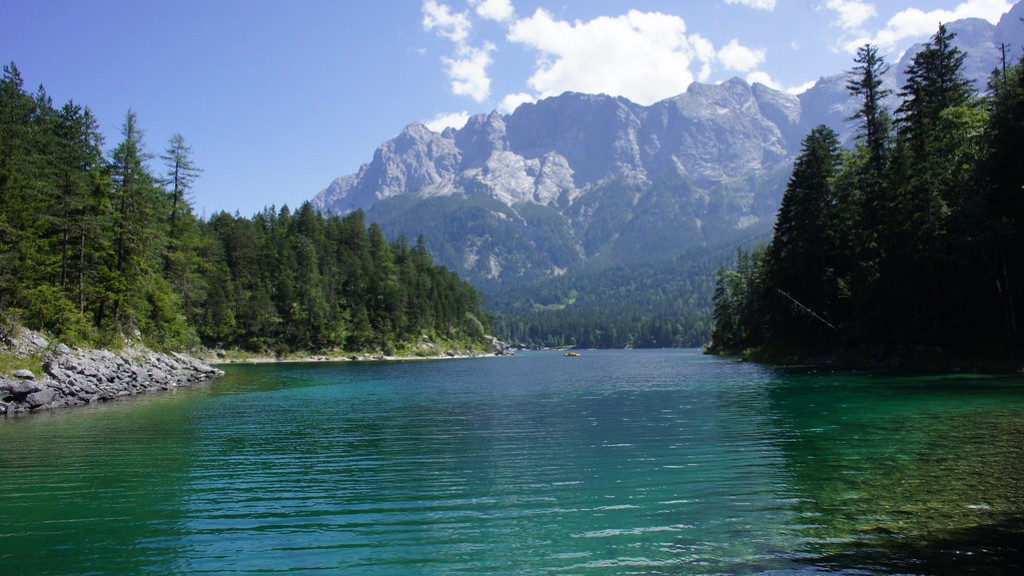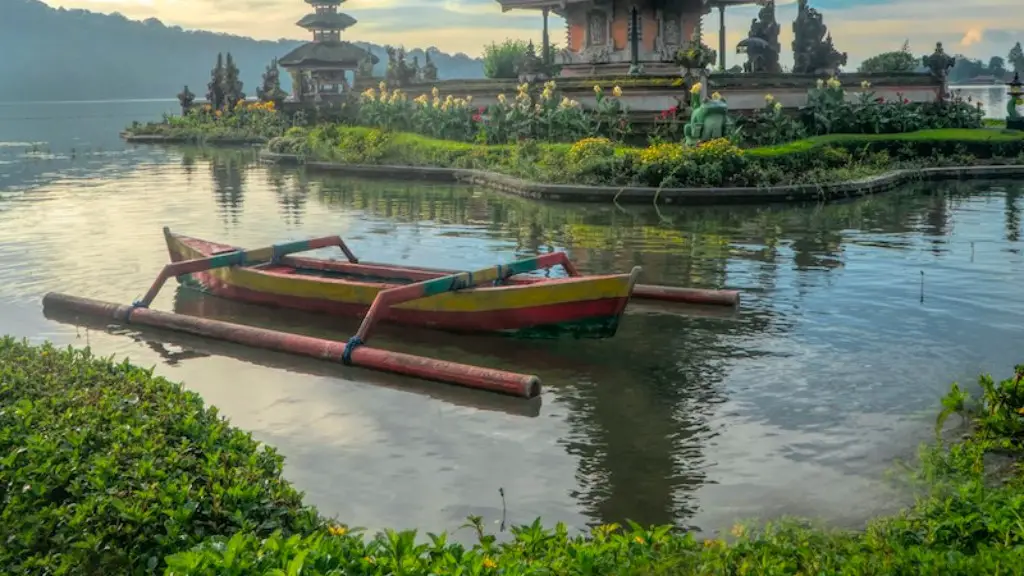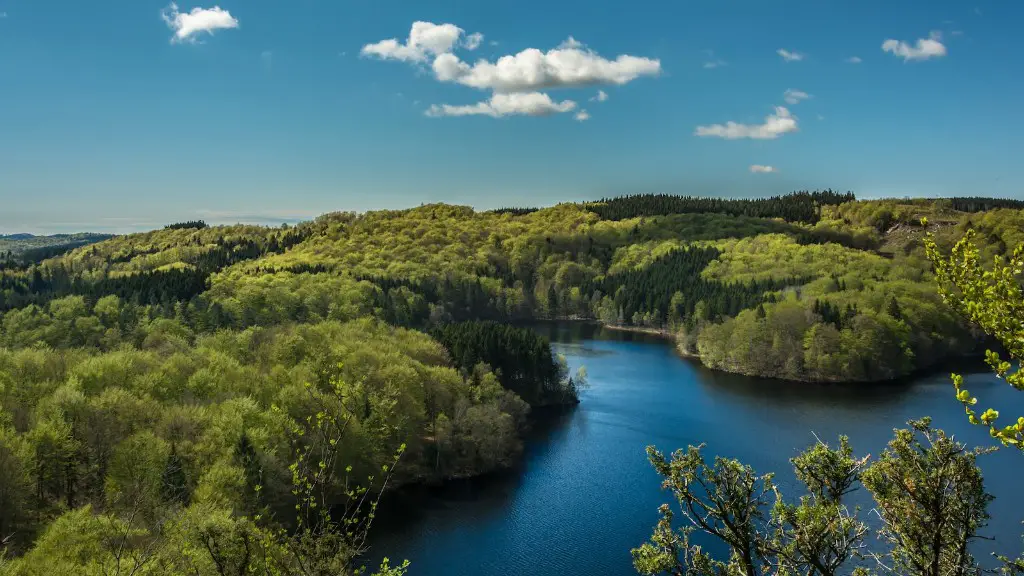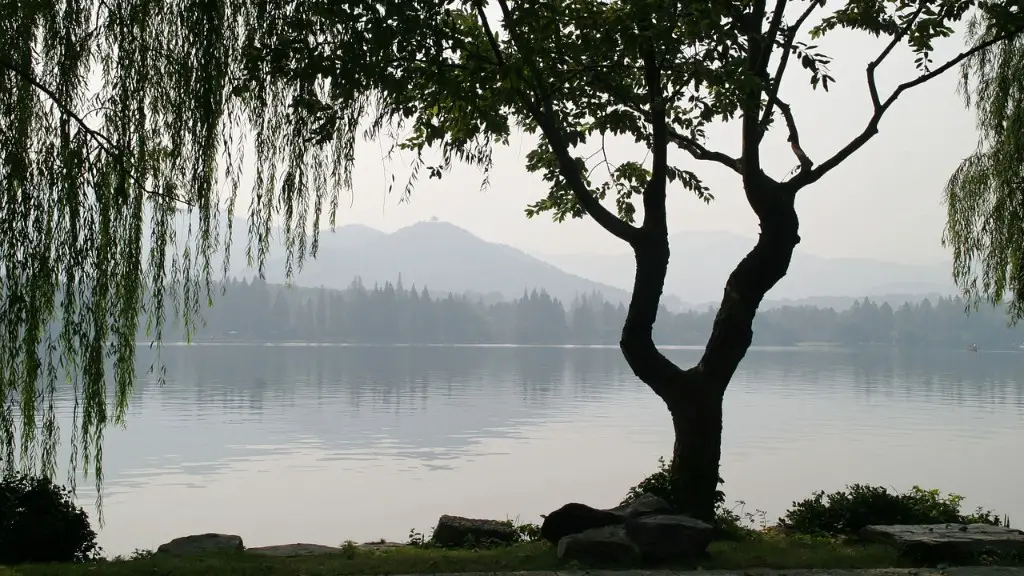How Did Early Africans Use Lake Victoria?
Lake Victoria is the biggest lake in Africa. It lies in East Africa and spans Tanzania, Kenya, and Uganda. It serves as an essential resource to those living in the surrounding countries. Since early times, the people of East Africa have heavily utilized the lake and its abundant resources.
In the 1800s, the area around Lake Victoria was populated by numerous clusters of small villages. People living in and around these communities relied on the lake for water, crops and nutrition. Early inhabitants of the region also depended on the lake for fishing and gathering fruits, plants, and animals. They also used it as a means of transportation, trading goods and services across the village.
The early Africans made use of the abundant materials available at Lake Victoria. Wood, bark and grass were all used in construction projects of various kinds. Craftsmen even crafted boats for fishing out of materials found along the lake’s banks. Additionally, these boats were used to travel to different regions around Lake Victoria to trade goods.
Lake Victoria played an important role in the lives of early Africans, providing them with a variety of resources. The lake was a major source of food, acting as a hub for local fishing. This fishing came in the form of trapping, spearing, poisoning, and netting. Lake Victoria also provided a means for transport. Early Africans used canoes, boats, and rafts to travel between the villages around the lake.
The source of food was not restricted to only the fish population in the lake. Research has shown that the shores of Lake Victoria were also a major source of food. Lions, antelope, wild pigs, and hippopotamuses were all prominent species in the area—providing the people with an alternative food source away from the lake itself.
The resources provided by Lake Victoria were a major factor in underpinning the development of the early African societies. It provided a reliable food supply and a means of trading goods and services. The lake also served as a source of spiritual connection to the local communities. Through legends, folklore and myths, the lake has served as a source of spiritual connection and identity for the people of the region.
Apart from its positive influence on the local community, Lake Victoria has also served as a source of conflict in the area. Early Africans were known to fight over fishing rights and water quality on the lake, and disputes over land were common. Today, the lake is still a source of contention between different countries, with each trying to secure its share of its resources.
Trading and Bartering
In the early days, Lake Victoria was a major trading route for East Africans. Early inhabitants used their vessels to trade goods and services between different villages on the lake. They would barter items, such as clothes and weapons, for food, tools, and access to other goods.
The lake also served as a point of connection for the early African communities. It allowed different groups to trade and interact, enabling cultural exchange and the spread of ideas. Additionally, it provided access to goods and services that would otherwise have been inaccessible to individuals living in remote regions.
The trading relations established between the different groups around Lake Victoria were not limited to bartering goods and services. Intermarriage was also common. As a result, an extensive network of kinship and familial relations was formed among the different villages.
The trading relations established between the different groups around Lake Victoria were not limited to goods and services either. Legendary stories and spiritual customs were also shared amongst the different cultures living on the lake. As a result, the lake has sustained and supported relationships between different African societies over centuries of changing dynamics.
Lake Victoria is also seen as an important resource for the local communities who live near it today. The lake provides a major source of food for the local communities, as well as other uses such as transportation, fishing and the collection of natural resources.
Today, Lake Victoria is still a major source of income for the countries located around its shores. It provides a unique understanding of African cultures and brings a sense of shared identity and attachment to East Africans. It also remains an important resource for the local communities who rely on it for their livelihood.
Environmental Impacts
The environmental impact of Lake Victoria has been widely reported, especially in recent years. Despite its importance to local communities and the wider region, the lake is facing a number of environmental challenges including industrial and agricultural pollution, as well as a decrease in availability of fish.
The increasing levels of pollution in Lake Victoria is mainly attributed to the large number of industries and agricultural activities surrounding it. Industries release large amounts of pollutants, such as fertilizers and fertilizers wastes, into the lake, while agricultural activities release large amounts of nitrogen into the water.
The pollution of Lake Victoria is causing serious consequences for the people and wildlife that depend on it. The use of agricultural and industrial pollutants has been linked to a decrease in fish populations, and the spread of disease-causing bacteria into the water.
In recent times, conservation organizations have been working to address the environmental challenges facing Lake Victoria. This includes efforts to reduce the amount of pollutants and fertilizers entering the water, as well as the introduction of proper waste management systems.
Additionally, conservationists are also focusing on the protection of the lake’s wildlife, by encouraging sustainable fishing practices and protecting vulnerable species.
Despite the challenges, Lake Victoria remains an important source of livelihood for local communities and a source of identity and shared history for East Africans. It is a special resource that has been used by African communities for centuries and continues to be important to the present day.
Conclusion
Lake Victoria has played an important role in the history of East Africa. It has been an important source of food, trade, culture, and identity for many generations of people. Despite the environmental challenges it faces, Lake Victoria continues to be an important resource for many East Africans.





